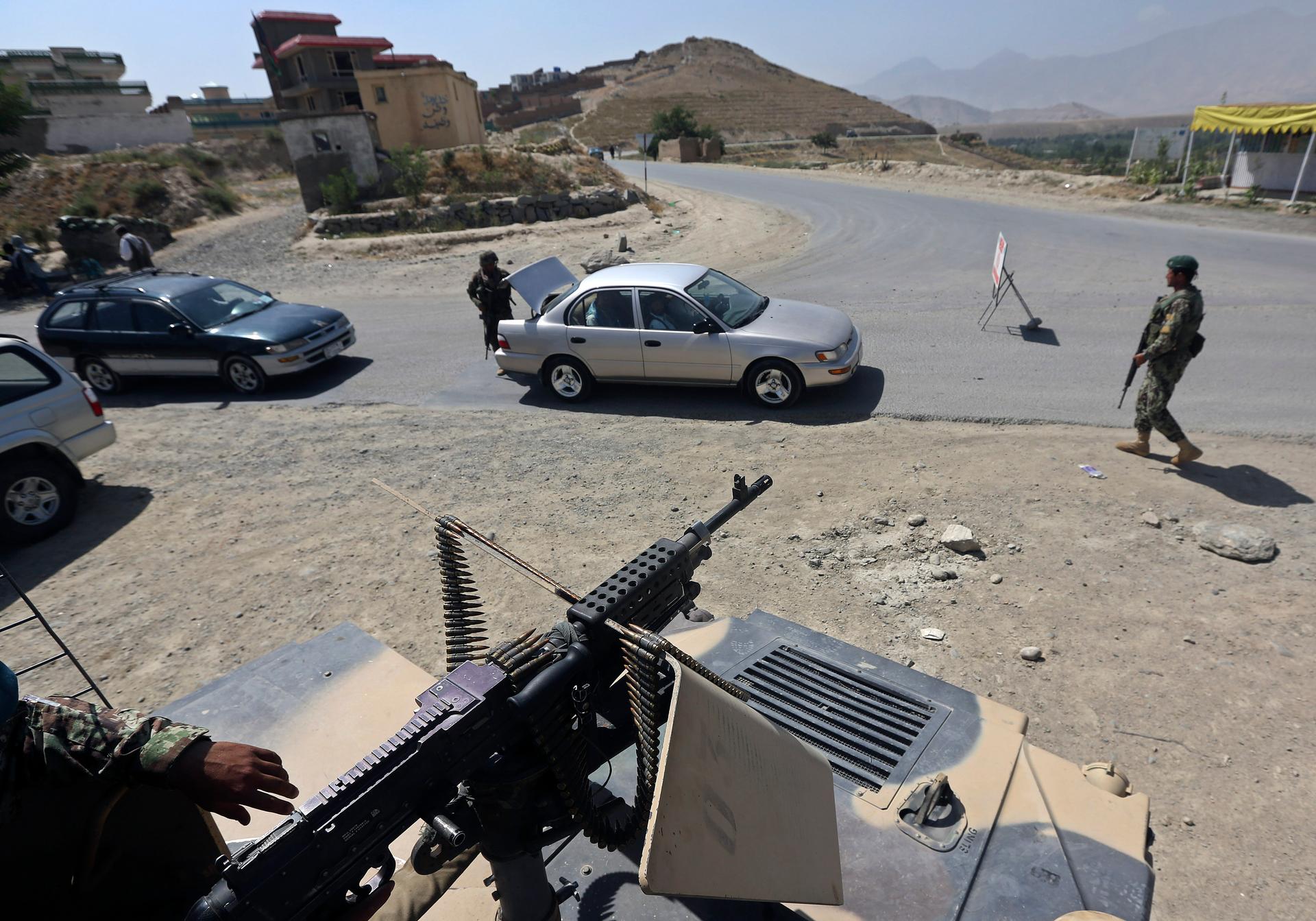The death of an American general reveals the dilemma of working with Afghan soldiers
Afghan National Army soldiers inspect a car at a checkpoint near the British-run military training academy, Camp Qargha, in Kabul on August 6, 2014.
US Army Maj. Gen. Harold Greene was killed by an Afghan soldier at a military training academy outside of Kabul on Tuesday in what was reportedly the first "green-on-blue" attack — where an Afghan soldier opens fire on coalition forces — in months.
Greene is reportedly the highest-ranking member of the American military to die in the war in Afghanistan since it began on October 7, 2001. He was also possibly the highest-ranking officer to be killed in action since Vietnam.
"The Taliban has not taken credit, which is unusual because they usually do pretty quickly," Matthew Rosenberg, a foreign correspondent for the New York Times, said Monday. "Their spokesman told us that they're still trying to figure out what had happened."
Rosenberg said that Afghans have become increasingly alienated and angry about the foreign presence on the ground. "Some of them have internalized the Taliban narrative without actually joining the Taliban," he said.
At this point, it is still unclear if the general's rank was a central motive of the attack. "Presumably, the Afghan soldier would have known that the man with stars on his shoulders was important," Rosenberg said. "And he was shot at close range, which makes it sound like he was standing [near] this major general. But we just don't know details yet."
CNN reported on Wednesday that the gunman opened fire from around 100 yards away, according a coalition official. There is no evidence that the shooter was a Taliban member, but Rosenberg says it's possible that the organization has covert allies within the Afghan military.
"There's an assumption that the Taliban has sympathizers in a lot of places," he said. "But, there's not a whole lot of evidence that most of these attacks are pre-planned by the Taliban or a Taliban sleeper or something of that nature."
Instead, the attacks seem to stem from simple anger and frustration. "The preponderance of insider attacks, by most accounts, appear to be Afghans who simply don't want to see foreigners here anymore — quite a frightening prospect," Rosenberg says. Weeding out a covert Taliban spy is one thing, but identifying those who may suddenly snap because of a feeling of alienation is something entirely different.
"How do you guard against that?" Rosenberg asks. "It's a much more difficult proposition."
When these types of attacks ticked up in 2012, Rosenberg said Americans began training Afghans while wearing body armor. "You put up walls between you and the people you're training to protect yourself," he said. "But that also alienates them, and further makes it more difficult to get the training done, and to have any real meaningful presence here. It makes it more dangerous in some ways because people who feel alienated and feel distant from you are much more likely to attack you."
When it comes to the impact this incident will have on the United States, Rosenberg says the attack might be used as a "selling point" to ensure that an American presence remains until at least 2016.
At the moment, there is no clear solution to combatting insider attacks, though. Rosenberg says taking away weapons from Afghans to prevent these kinds of incidents is simply not an option.
"The Afghan military faces real threats," he said. "They need guards — they have to guard their own facilities. There's nobody else to do it for them. And those guards need to have weapons. It's just impossible [to remove their weapons]. You're fighting a war that is now fought largely by Afghan forces. They are going to be very armed, and they're going to be all around you."
